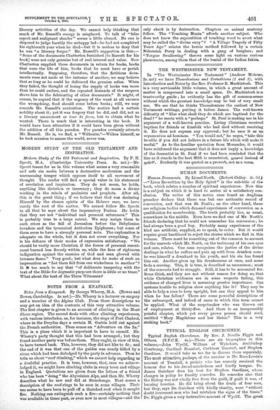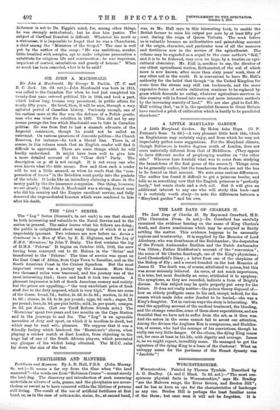TYPICAL ENGLISH CHURCHMEN.
Typical English Churchmen. By Rev. J. Neville Figgie and Others. (S.P.C.K. 4s.)—There are six biographies in this volume,—John Wyclif, William of Wykeham, Archbishop Courtenay, Cardinal Beaufort, Cuthbert Tunstall, and Stephen Gardiner. It would take us too far to discuss them separately. The most attractive, perhaps, of the number is Mr. Ross-Lewin's account of Tunstall, a prelate who has scarcely received the honour due to his „broad-mindedness and kindly temper. Dr. James Gairdner does his best for Stephen Gardiner, whose changes in policy he frankly concedes. He concedes also that the Bishop was not wholly free from the guilt, if guilt it was, of burning heretics. He did bring about the death of four men, but they, says Dr. Gairdner with kindly charity, were "without doubt irreverent men who had mistaken the signs of the times." Dr. Figgis gives a very instructive account of Wyclif. The great• Reformer is not to Dr. Figgie's mind, for, among other things, he was strongly anti-clerical;- but he does him justice. The subject of Cardinal Beaufort is difficult. Whatever his merit as a statesman, it is impossible to forget that he was a Churchman, a chief among the "Ministers of the Gospel." The case is well put by the author of the essay: "He was ambitious, secular, little troubled with scruples, apt to make religious persecution a substitute for religious life and conversation; he was imperious, impatient of control, ostentatious and greedy of honour." When so much has been conceded, what is to be said?



























































 Previous page
Previous page